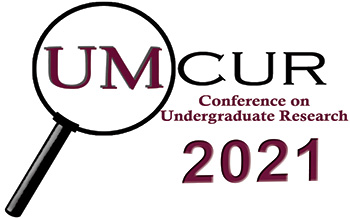Presentation Type
Presentation
Faculty Mentor’s Full Name
Joel Iverson
Faculty Mentor’s Department
Communication Studies
Abstract / Artist's Statement
The term “forensics” originates from the Latin root forensis which means pertaining to the public, debate, and/or discussion. Co-curricular forensics are competitions of public speaking and argumentation that are usually pursed in addition to the normal course of study at a secondary or post-secondary institution. More commonly, the activity is known as speech and debate. I claim that participants of speech and debate are affected by the experience in a way that benefits their lives academically, professionally, and interpersonally. This is substantiated by the effect it has on relevant skills and participants personality.
A qualitative study of informants is performed to substantiate this. The informants are current high school speech debaters and debate participants. Interviews with these informants are the main evidence offered for the study. A Myers-Briggs personality test is also utilized. Analysis of this data is used to show the beneficial effects that debate has had on the informants.
This topic has been argued extensively in the realm of communication studies. Previously conducted research shows a measurable correlation between debate and certain aspects of student life, such as critical thinking skills or interpersonal skills. Objections to the benefits have been raised with consideration to disadvantages of a busy schedule, negative health effects, and unsatisfactory tournament results. Further research can be carried out within the communication studies discipline in order to fully conclude how forensics influences academic and professional achievement, especially in high school populations as there are no statistically significant research available for that demographic.
Beyond expanding previous research, the positive conclusions of this study can be used for recruitment and outreach efforts for both the study of communication and the passion of argumentation. Furthermore, forensics scholars can reference such positive conclusions when attempting to single themselves out as a superior candidate for a position, scholarship, or educational opportunity. Conversely, if the results prove to be negative, the study would be useful in reforming the art of debate into being a better program for participants.
Category
Humanities
Oral Presentation
Individual Effects of Speech and Debate in High School
The term “forensics” originates from the Latin root forensis which means pertaining to the public, debate, and/or discussion. Co-curricular forensics are competitions of public speaking and argumentation that are usually pursed in addition to the normal course of study at a secondary or post-secondary institution. More commonly, the activity is known as speech and debate. I claim that participants of speech and debate are affected by the experience in a way that benefits their lives academically, professionally, and interpersonally. This is substantiated by the effect it has on relevant skills and participants personality.
A qualitative study of informants is performed to substantiate this. The informants are current high school speech debaters and debate participants. Interviews with these informants are the main evidence offered for the study. A Myers-Briggs personality test is also utilized. Analysis of this data is used to show the beneficial effects that debate has had on the informants.
This topic has been argued extensively in the realm of communication studies. Previously conducted research shows a measurable correlation between debate and certain aspects of student life, such as critical thinking skills or interpersonal skills. Objections to the benefits have been raised with consideration to disadvantages of a busy schedule, negative health effects, and unsatisfactory tournament results. Further research can be carried out within the communication studies discipline in order to fully conclude how forensics influences academic and professional achievement, especially in high school populations as there are no statistically significant research available for that demographic.
Beyond expanding previous research, the positive conclusions of this study can be used for recruitment and outreach efforts for both the study of communication and the passion of argumentation. Furthermore, forensics scholars can reference such positive conclusions when attempting to single themselves out as a superior candidate for a position, scholarship, or educational opportunity. Conversely, if the results prove to be negative, the study would be useful in reforming the art of debate into being a better program for participants.
